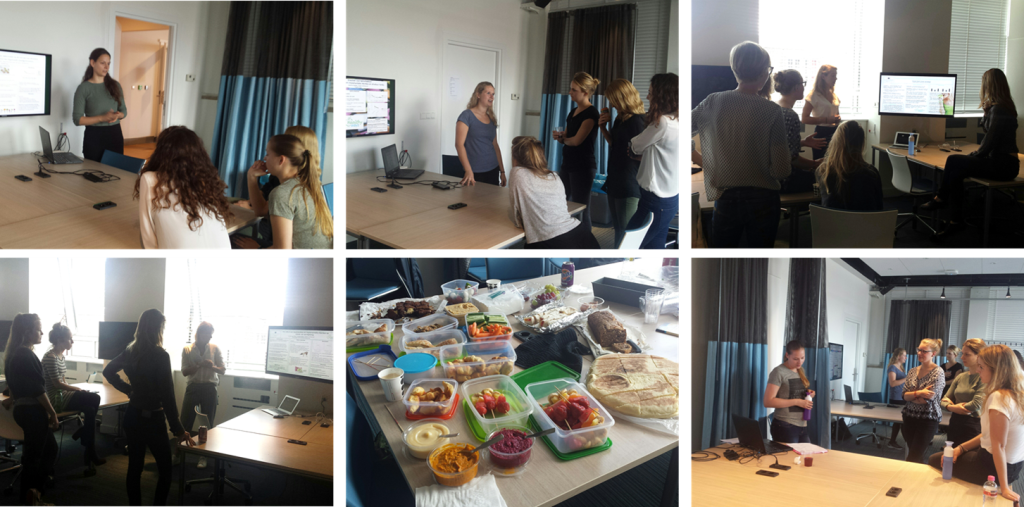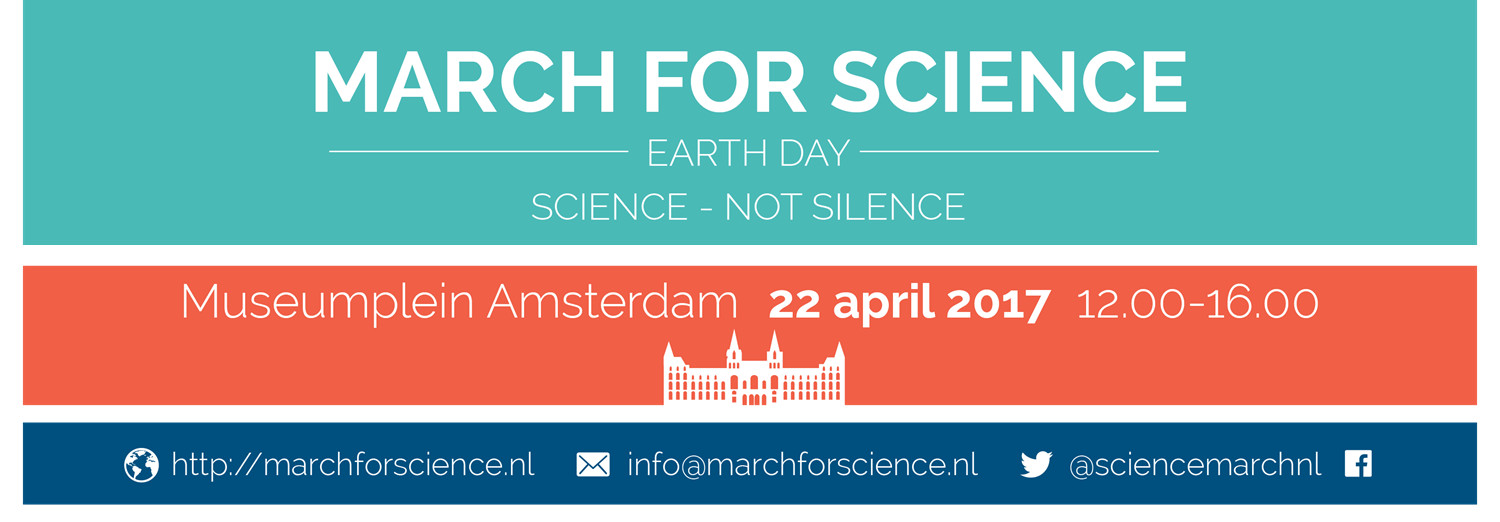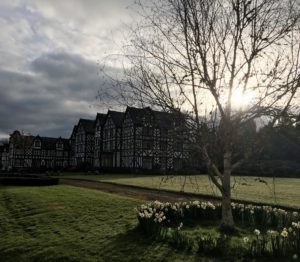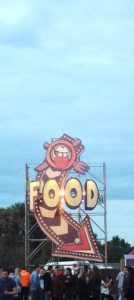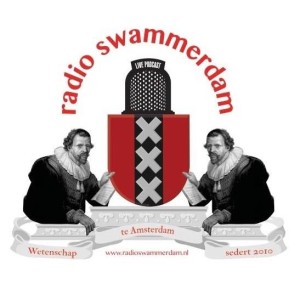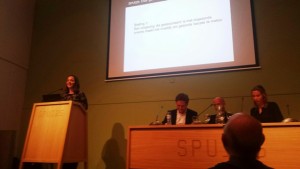For many people, the new year starts with New Year’s resolutions. Dutch newspaper ‘Trouw’ asked Aukje about how to enact these good intentions.
You can read the article here (in Dutch): www.trouw.nl/home/goede-voornemens-stel-je-automatische-piloot-opnieuw-in~ac28eb30/
New paper reviewing outcome devaluation paradigms
In their new paper, Poppy and Sanne provide a review of outcome devaluation paradigms. They outline that such paradigms are useful but that they do not inform us to what extent insensitivity to outcome devaluation can be attributed to either strong habit formation or to weak goal-directed control. They provide suggestions for future research as well as alternative paradigms to study such processes.
Read the article here!
Reference
Watson, P., & de Wit, S. (2018). Current limits of experimental research into habits and future directions. Current Opinion in Behavioral Sciences, 20, 33-39.
Warm welcome to our new post-doc Irene van de Vijver!
 As of yesterday, the Habit Lab has a new member: Irene van de Vijver. Irene will be working as a post-doc focussing on the neural underpinnings of habitual behavior and implementation intentions.
As of yesterday, the Habit Lab has a new member: Irene van de Vijver. Irene will be working as a post-doc focussing on the neural underpinnings of habitual behavior and implementation intentions.
Welcome Irene!
If you want to read more about her interesting research and wealth of expertise, visit her personal page:
New paper on representational precision during action preparation
In this new study, using fMRI data, the authors demonstrated how the precision of representations in perceptual and motor areas is affected by the specific action goal and the associated reward value when participants prepare face or hand actions. The article is now in press in NeuroImage.
Reference:
van Steenbergen, H., Warren, C.M., Kühn, S., de Wit, S., Wiers, R.W., & Hommel, B. (in press). Representational precision in visual cortex reveals outcome encoding and reward modulation during action preparation. NeuroImage
New article on breaking habits with implementation intentions
The interplay between inflexible habits and flexible goal-directed behaviour can be experimentally modelled using
the slips-of-action task. In a new article, we report how such habits can be changed with implementation intentions (specific if-then action plans). We demonstrate that implementation intentions improved the ability to suppress previously learnt responses towards no-longer-valuable abstract outcomes. However, when food outcomes were used, the beneficial effect of implementation intentions versus goal intentions was not observed. The article will be published in Special Issue on Learning via Instructions in Acta Psychologica.
Reference: Verhoeven, A.A.C., Kindt, M., Zomer, C.L., & de Wit, S. (in press). An experimental investigation of breaking learnt habits with verbal implementation intentions. Acta Psychologica.
New article: neural basis of the effect of food-associated cues on choice
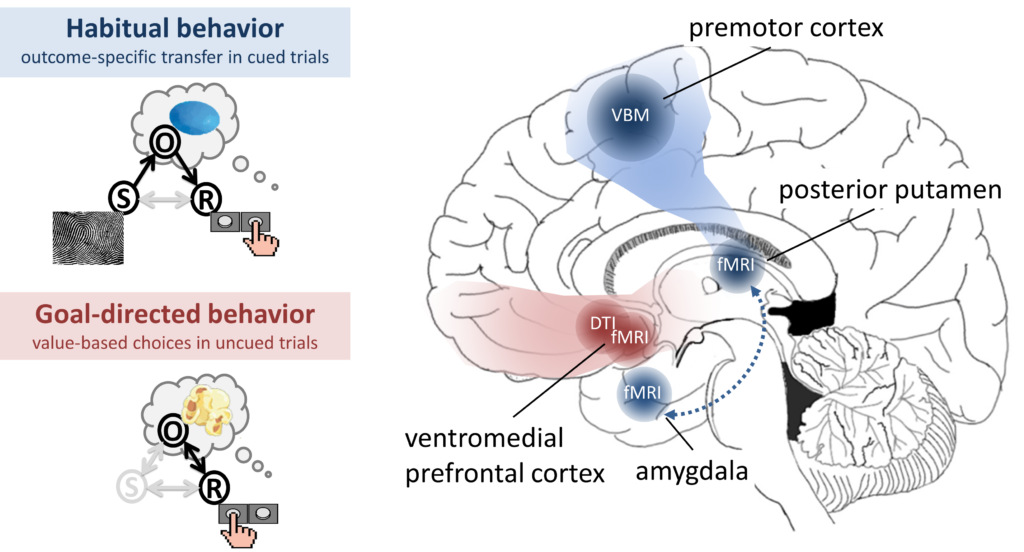
In this neuroimaging study, we investigated the effect of environmental stimuli on food choices (using a Pavlovian-instrumental transfer paradigm). We replicated earlier studies that found that sating participants on a particular food immediately reduces their responding to obtain this food in a computerized task. However, when food-associated (Pavlovian) stimuli are presented in the background, these will bias responding towards the signaled food regardless of satiation. Next, we related behavioral performance to multimodal MRI. The biasing effect of food-associated stimuli was related to brain activity in the posterior putamen and functional coupling with amygdala, and individual differences in gray matter in premotor cortex. This brain network was previously implicated in inflexible, outcome-insensitive habits. On the other hand, we found that goal-directed behavior in the absence of food-associated cues was related to brain activity in ventromedial prefrontal cortex and individual differences in white-matter tract connectivity with the caudate. Therefore, this study provides evidence for dissociable neural networks that subserve inflexible, stimulus-guided behavior versus goal-directed action.
van Steenbergen, H., Watson, P., Wiers, R.W., Hommel, B., & de Wit, S. (in press). Dissociable corticostriatal circuits underlie goal-directed versus cue-elicited habitual food seeking after satiation: Evidence from a multimodal MRI study. European Journal of Neuroscience.
DOI: 10.1111/ejn.13586
For a commentary on this article, see: http://onlinelibrary.wiley.com/doi/10.1111/ejn.13617/pdf
Impressions of the March for Science
The March for Science was a great success in bringing scientists and non-scientists together, and making our voice heard. In fact, we talked to so many interested people that we almost lost our voices by the end of the day! Below some impressions of the day…
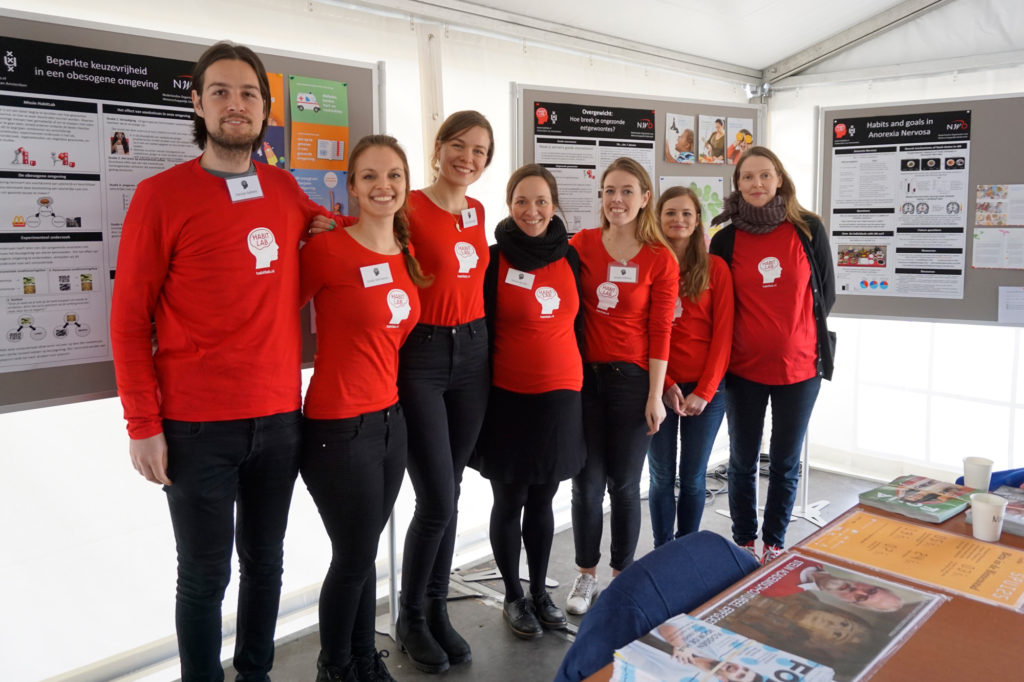

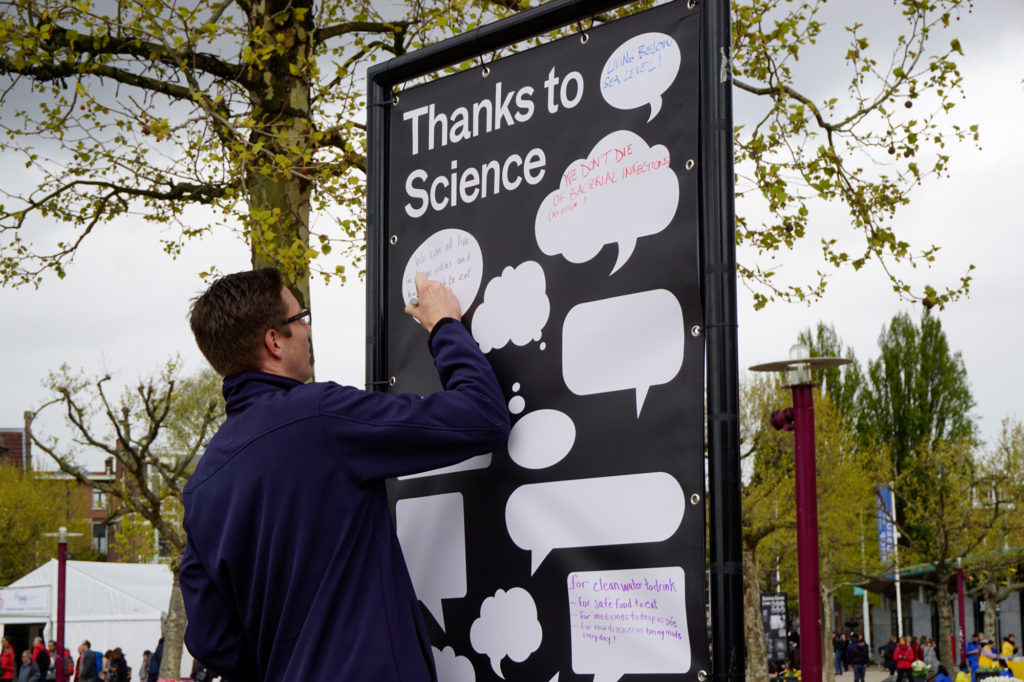
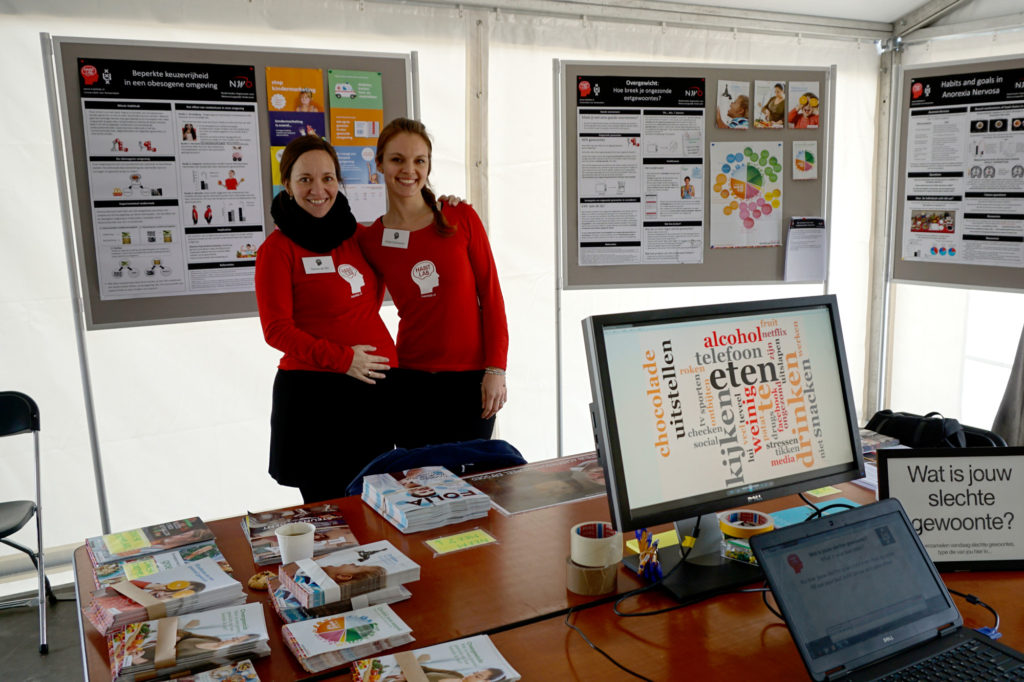
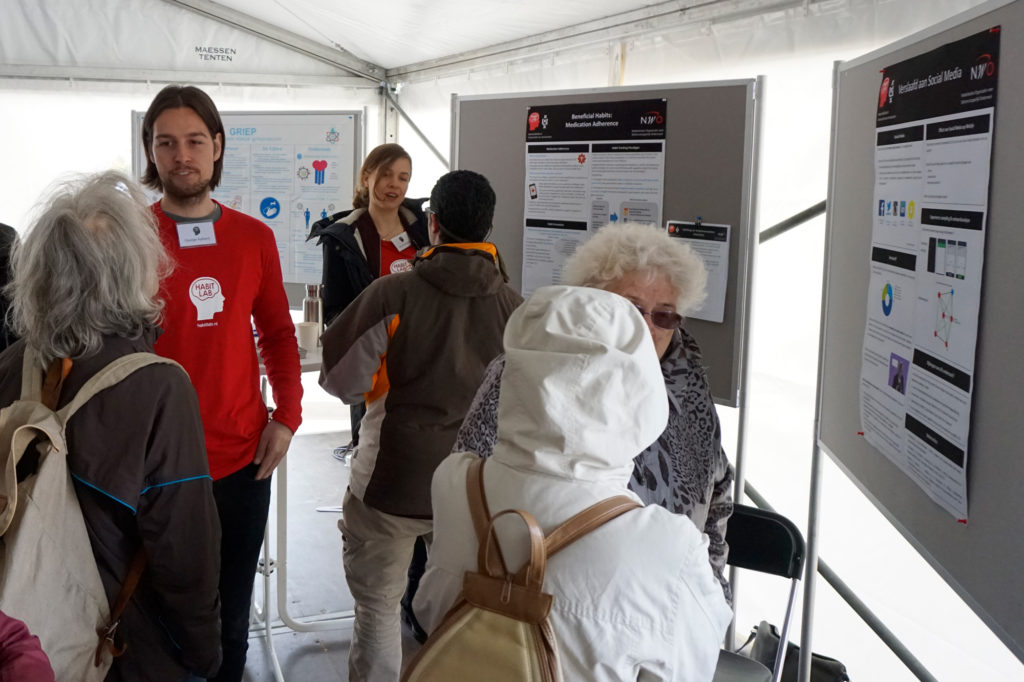
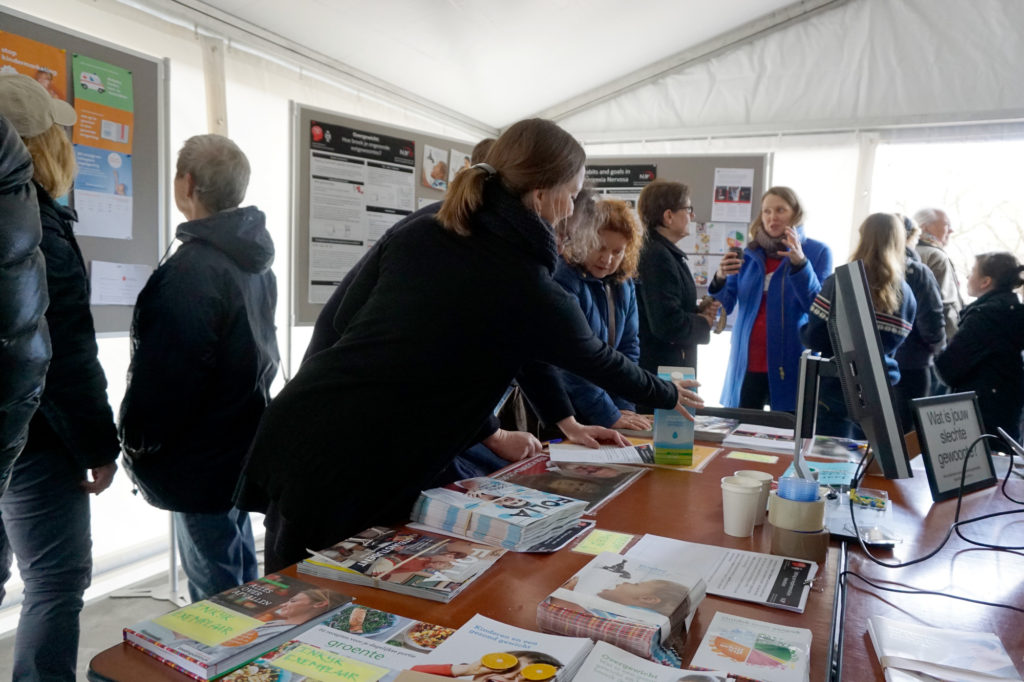
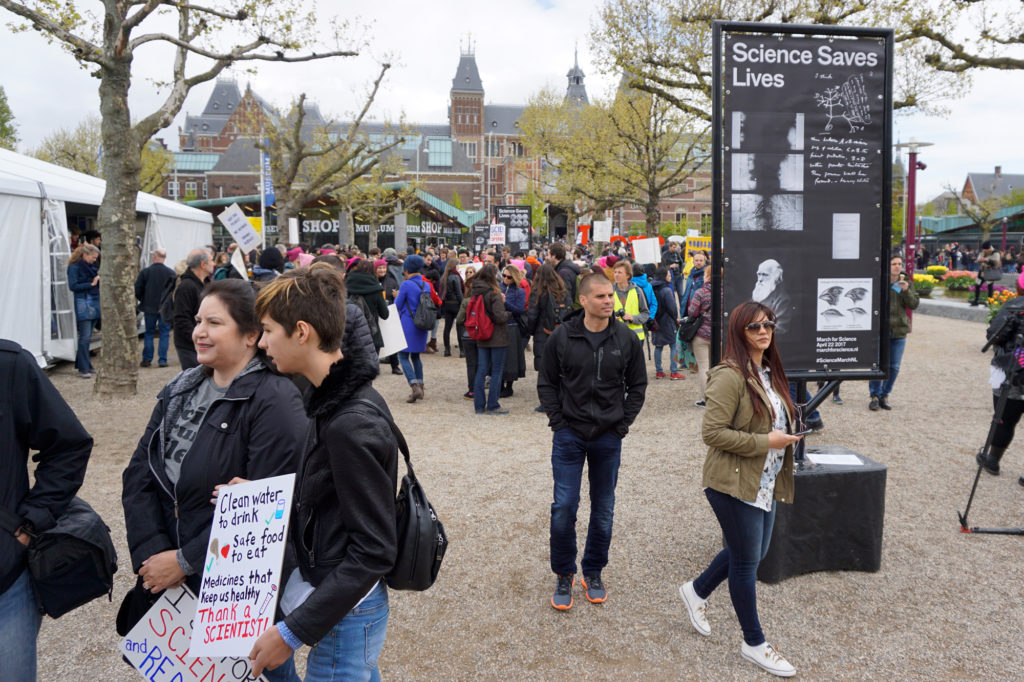
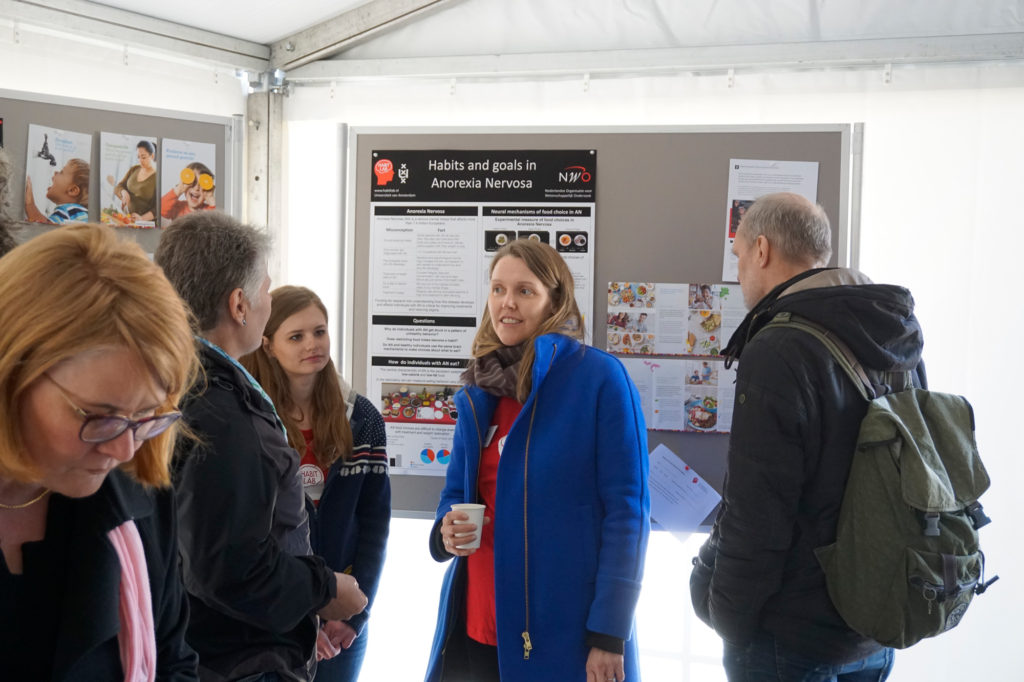
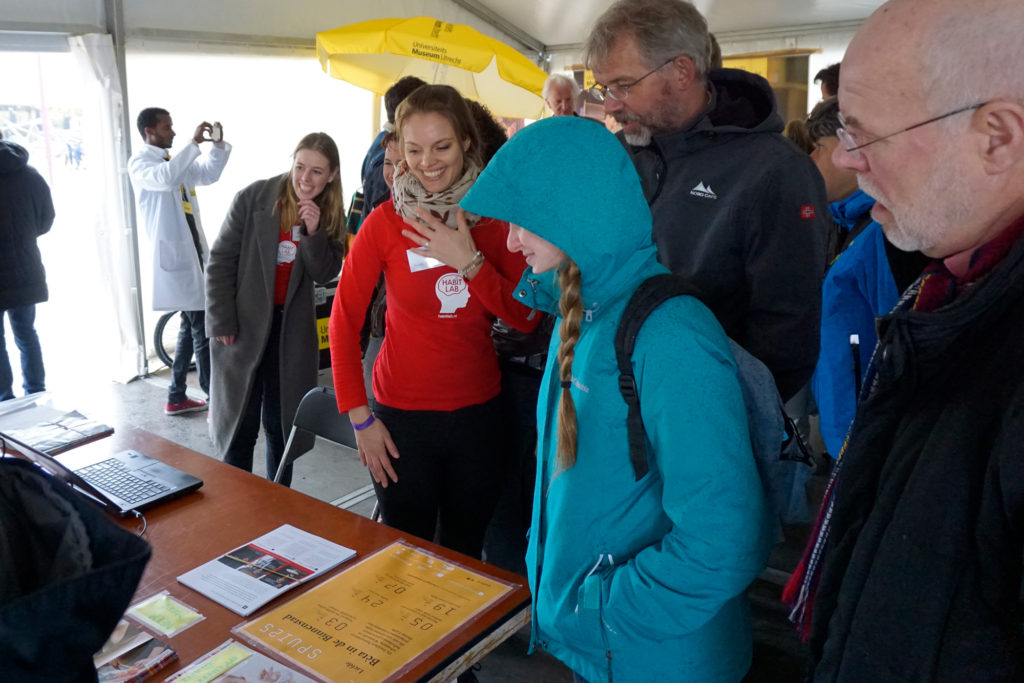
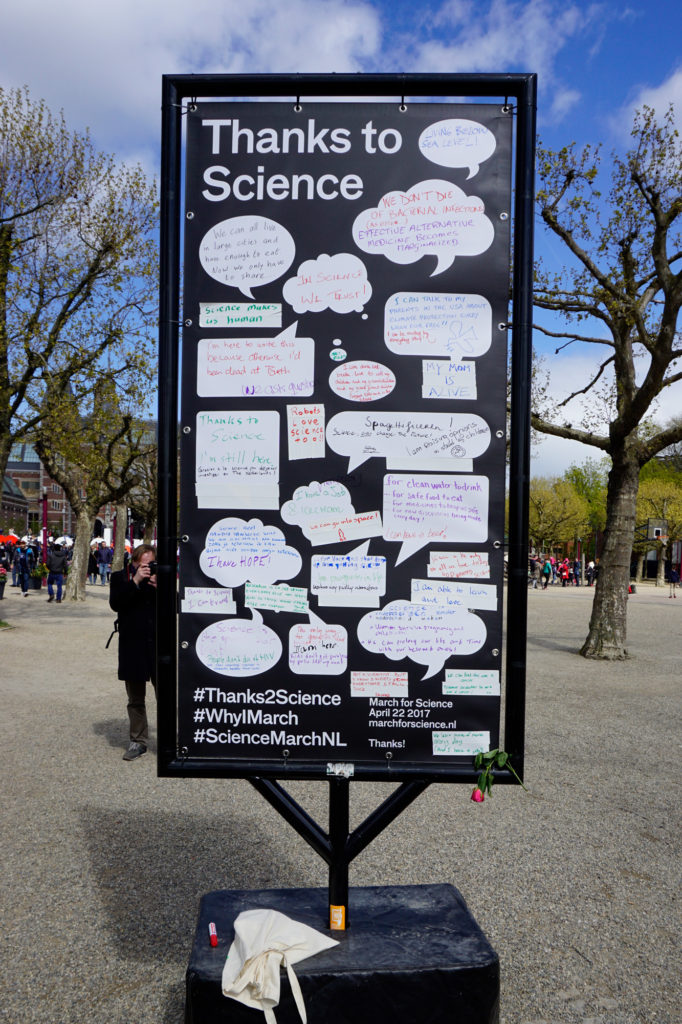
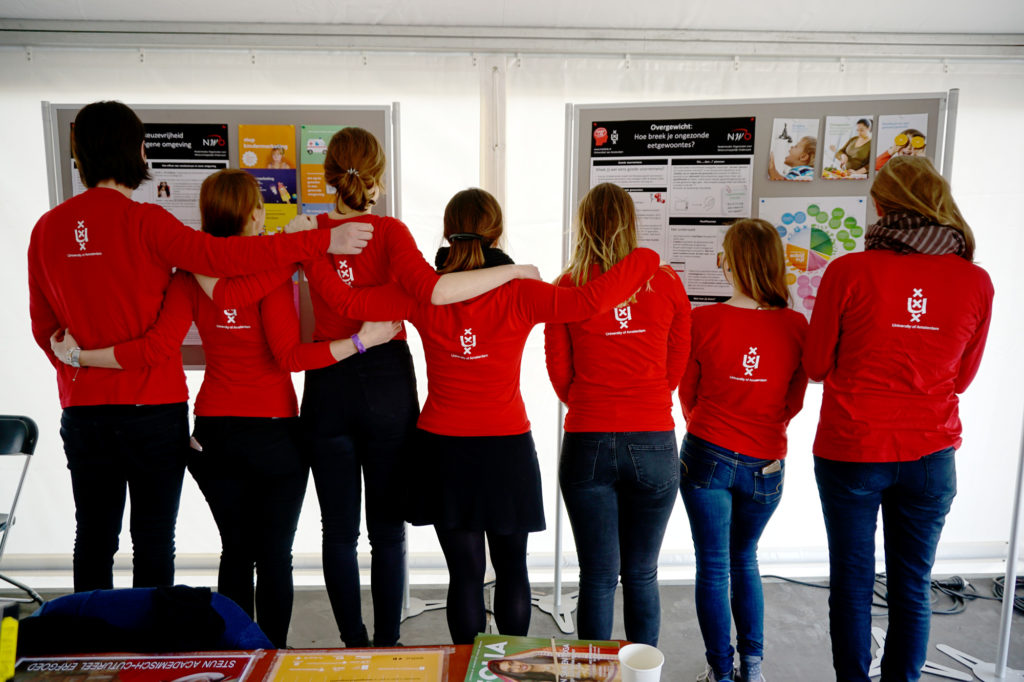
Habit Lab @ March for Science
At the Habit Lab, we know how important science is. This Saturday, April 22nd, the March for Science is held all over the world, including in Amsterdam, to raise awareness about the importance of science for our community. The Habit Lab will be present to support the March for Science and to demonstrate what our research means for society! You can find us in one of the science tents, wheree we will demonstrate what we study, how we do research, and what its implications are for the community.
Check out the program and pay a visit to the science tents!
Poppy presents at Associative Learning Symposium
From April 11 to 13, the Associative Learning Symposium was held in Wales. In the beautiful, remote environment of the Gregynog Hall, this three-day symposium was filled with inspirational talks and discussions. Here, Poppy presented her recent work on insensitivity to devaluation after extended training in humans and Aukje presented a poster about the effects of different types of implementation intentions for breaking habits.
New article: Stimulus control over food-seeking in obesity
Our environment is full of cues signaling the availability of tasty, but often unhealthy, foods. In this paper, Poppy and colleagues report a recent study that examined the effect of food-associated stimuli on choice behavior in participants with healthy weight versus severe obesity. During a computerized test, participants were exposed to Pavlovian cues predictive of food pictures, and we examined their biasing effect on instrumental choice. For example, would a cue associated with crisps lead to a higher response rate for crisps (as opposed to, for example, lettuce)? Obese participants were indeed found to be more sensitive to high-calorie food cues relative to low-calorie cues. In contrast, healthy-weight individuals did not show a difference between the two food types. Therefore, this study supports the clinical relevance of this associative mechanism, and suggests that severely obese individuals are particularly sensitive to high-calorie food cues whereas low-calorie food cues have little effect on their behavior.
Follow this link to access the paper.
Reference: Watson, P. Wiers, R.W., Hommel, B., Gerdes, V.E.A., de Wit, S. (2017). Stimulus Control over Action for Food in Obese versus Healthy-weight Individuals, Frontiers in Psychology – Eating Behavior, doi.org/10.3389/fpsyg.2017.00580
Follow this link to the Dutch press release
Chapter on habits in new Wiley Handbook of Cognitive Control
In the recently published ‘Wiley Handbook of Cognitive Control’, Sanne is the author of the chapter entitled ‘Control of Behaviour by Competing Learning Systems’. This chapter provides an overview of experimental research on goal-directed and habitual processes that control our behaviour.
More information? Check the Wiley website!
Reference: de Wit, S (2017). Control of Behaviour by Competing Learning Systems. In T. Egner (Ed.), The Wiley Handbook of Cognitive Control (pp. 190-206). Wiley-Blackwell
Aukje presents research at ARPH conference
On February 2nd and 3rd, the ARPH (Association for Researchers in Psychology and Health) conference took place in Leiden. As every year, this conference provided a great overview of the state-of-the-art research concerning health psychology in the Netherlands and Belgium.
In the session concerning ‘Making healthy food choices’, Aukje presented her latest work, entitled ‘Why health warnings fail to change cue-elicited food-seeking behavior’. In this research she used a PIT task to demonstrate how stimuli in the environment interfere with goal-directed behavior, which could make health warnings ineffective in the presence of food-associated stimuli.

Interview with Aukje on New Year’s Resolutions
Assessing Habitual and Goal-Directed Control: New publication
A new paper by Zsuzsika Sjoerds, Sanne de Wit and others is now in press comparing two widely used paradigms that assess aspects of goal-directed and habitual behavior; the two-step sequential decision-making and the slips-of-action paradigm. The findings demonstrate moderate support for a common framework to describe the propensity towards goal-directed behavior, but also suggest that each task assesses distinct aspects of goal-directed behavior.
In press in: Frontiers in Behavioral Neuroscience
Reference:
Sjoerds, Z., Dietrich, A., Deserno, L., De Wit, S., Villringer, A., Heinze, H.-J., et al. (in press). Slips of action and sequential decisions: A cross-validation study of tasks assessing habitual and goal-directed action control. Frontiers in Behavioral Neuroscience, 10: 234.
New paper on habit propensity relating to sensation seeking not obesity
This project was conducted by Anja Dietrich in the research group of Annette Horstmann at the Max Planck Institute for Human Cognitive and Brain Sciences. The balance between goal-directed and habitual action control was measured in a sample of normal-weight, overweight, and obese participants using the slips-of-action test. We failed to find evidence for a relationship between weight status and sensitivity to outcome devaluation in this test. Independent of weight status, we did observe lower sensitivity to devaluation in sensation seekers, a subtype of impulsivity. This ‘habit propensity’ in sensation seekers may account for previous reports of weak avoidance behavior and risky decision making. In conclusion, behavioral flexibility in the sense of general disturbances in the balance between the habitual and goal-directed systems seems to be unaffected by weight status. Future studies are needed to clarify the role of specific subtypes of obesity (e.g., food addiction).
Reference: Dietrich, A., De Wit, S., Horstmann, A. (2016). General habit propensity relates to the sensation seeking subdomain of impulsivity but not obesity. Frontiers in Behavioral Neuroscience, 10, 213.
Sanne on Radio Swammerdam
On Sunday October 30th, Sanne was a guest on Radio Swammerdam. The show was about habits and addiction. Sanne was interviewed about our research at the Habit Lab, and informed the listeners about habits and addiction. In addition, the show made a report on the Healthyways study with Aukje, which was broadcasted during the show.
Listen to the podcast here! (In Dutch)
Radio Swammerdam is the science program from Amsterdam FM.
New paper on habit learning in Anorexia Nervosa
Sanne and collaborators published new research examining the role of habit learning in individuals with Anorexia Nervosa. The findings from the paper suggest that individuals with AN do not show a general deficit in the balance between goal-directed and habitual control, which was investigated in two studies using a computerized outcome-devaluation task. The authors note that future research is warranted to examine possible disorder-specific habits among individuals with AN.
Follow this link to access the paper.
Reference: Godier, L. R., de Wit, S., Pinto, A., Steinglass, J. E., Greene, A. L., Scaife, J., … & Park, R. J. (2016). An investigation of habit learning in Anorexia Nervosa. Psychiatry Research, 244, 214-222.
Sanne presents at debate about overweight in Amsterdam
On Tuesday October 25th, Sanne presented at the debate ‘Over gewicht in Amsterdam’. The debate was organized by SPUI25 and addressed the pressing issue of reducing obesity among children in Amsterdam. The topic was addressed by three discussants with a multidisciplinary background, including sociology (by Christian Bröer), psychology (Sanne) and anthropology (Else Vogel) and led to a lively debate among the discussants and the audience.
Music and monsters: Lowlands Science was a massive success!
The Habit Lab was represented at Lowlands 2016! At the Lowlands Science tent, visitors of the festival demonstrated their creative skills in a monster-drawing task that was part of the study conducted by the Habit Lab.The winner of the monster contest will be announced via Facebook!
To goal of this study was to examine processes hindering or promoting creativity. It turned out to be a great success! A special thanks to all the enthusiastic participants and great volunteers!
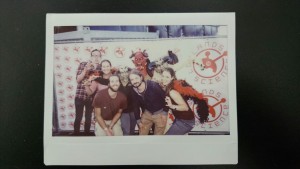
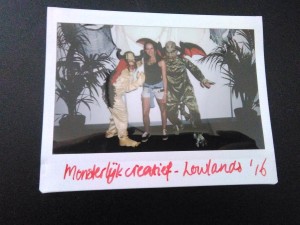

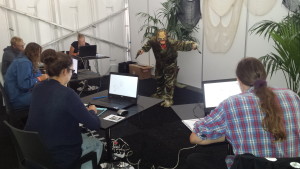
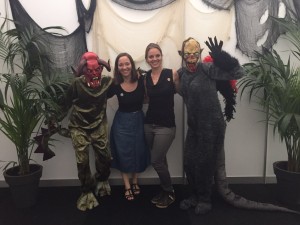
Habit Lab goes Lowlands: Creativity research @ Lowlands Science
The Habit Lab is going to conduct research at Lowlands! Lowlands, a large-scale three-day festival held from August 19 to August 21 , is one of the most important festivals of the Netherlands. As part of this festival, the event Lowlands Science is organized. Nine research teams will conduct a study in which Lowlands visitors can participate. The study conducted by our lab group will be about processes that promote or hinder creativity. Participants will show their most creative side during a creativity task in which they will search for a new monster that haunts Lowlands…
If you are visiting Lowlands, make sure to drop by at the Lowlands Science tent!
More info about the project: lowlands.nl/programma/monsterlijk-creatief
More info about Lowlands Science: lowlands.nl/programma/monsterlijk-creatief/#category-Lowlands_Science
UvA news: www.uva.nl
Lowlands Science wordt georganiseerd door BKB, New Scientist en Lowlands en wordt mede mogelijk gemaakt door IBM, De Hersenstichting, SIA en KNAW.
Sunny end-of-year “borrel” – Enjoy the summer!
To celebrate the accomplishments of this academic year, we organized a Dutch-style Habit Lab “borrel” last Friday.
It was a sunny afternoon, with a nice pick nick in the park, during which we reflected on a successful academic year while already looking forward to the projects that will come next.
Cheers to a great academic year. Enjoy the summer!
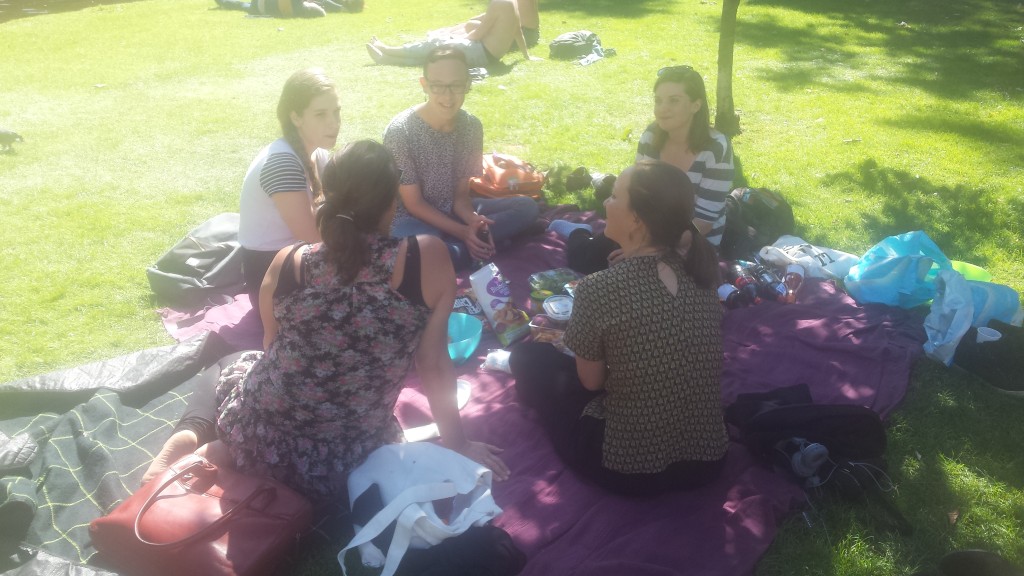
Successful Habit Event @ IS Groningen!
On Wednesday July 6th, the Habit Event took place at the International School Groningen. The day started with an educational talk on habits by Sanne. This was followed by interactive workshops on diverse aspect on habits and how to break them, including ‘Train your brain’ (by Poppy), ‘Planning to turn good intentions into good habits’ (by Aukje), and ‘Bootcamp’ (by Sebastian). Then, it was time for the Habit Games. During these games, the students found out themselves how habits work and how difficult it is to change your routines. The day ended with the award ceremony. The Habit Games were won by the all-boys team number 6! What an interesting, active and educational day it was!
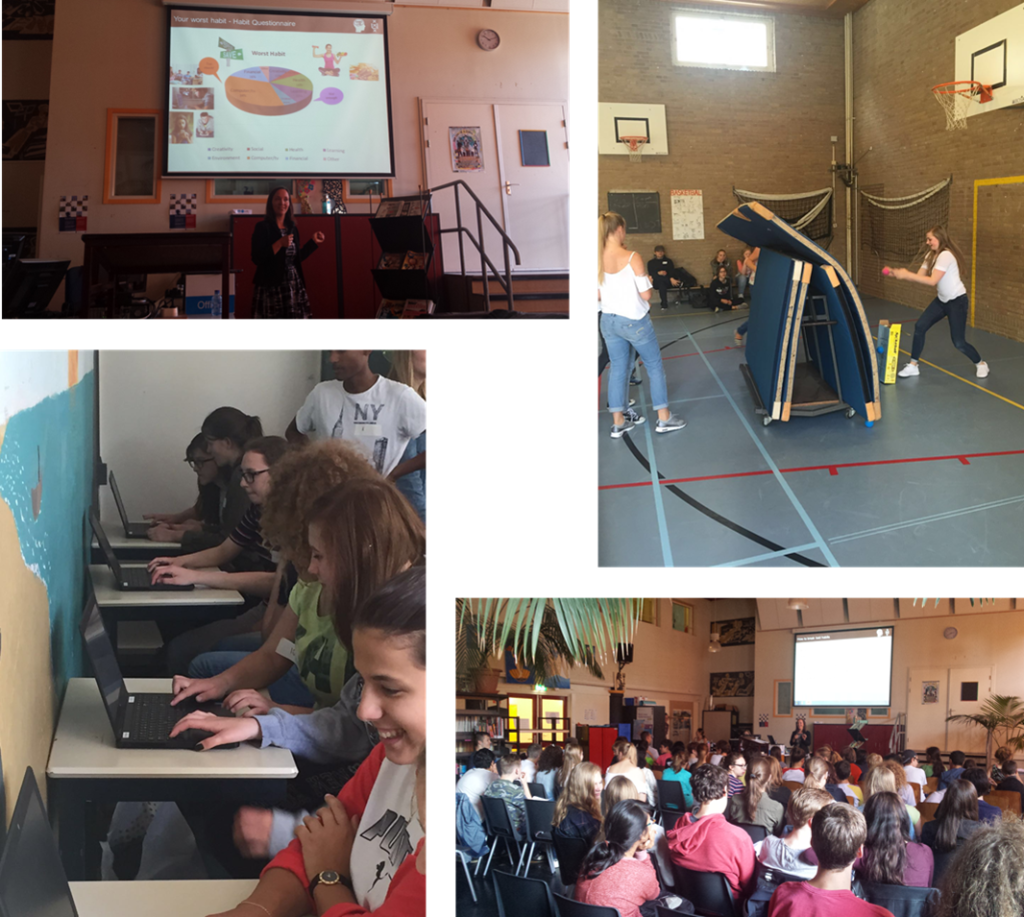
Sanne attends the Attention & Performance Meeting on “The Power of Instructions”
This meeting was part of the Attention & Performance meetings that started in 1966. This 27th meeting took place during the 9th-12th of June ’16 in “Priorij Corsendonck” (Oud-Turnhout, Belgium). The organizing committee consisted of Marcel Brass, Jan De Houwer, Christian Büchel, Senne Braem and Baptist Liefooghe.
The theme of the meeting concerned the implications and applications of learning via instructions:
Unlike other animals, humans have the unique ability to share and use verbal instructions to prepare for upcoming tasks. For example, using language we can learn without trial and error the route to a new city, how to build a cabinet, or how to prepare a meal. Furthermore, instructions also indirectly influence our behaviour. For example, knowledge about the efficiency of a medical treatment can change the effects of this treatment. Although verbal instructions are omnipresent in daily life and psychological research, the mechanisms via which they influence behaviour are still poorly understood. In this meeting, we bring together different experts from a variety of disciplines, from fear conditioning to cognitive control, using different manipulations, from stimulus-response instructions to hypnotic suggestions, to study the omnipresent effect of verbal instructions on brain and behaviour.
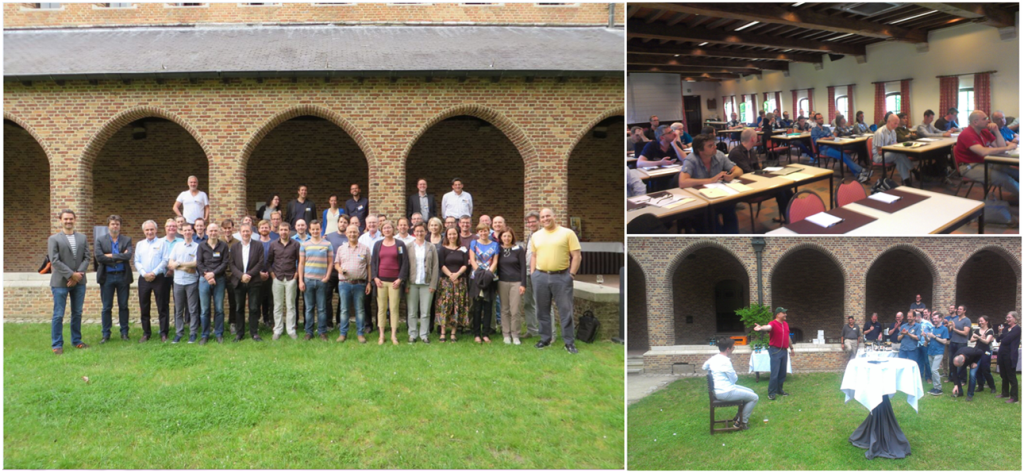
Habit event @ International School Groningen
On Wednesday, July 6th, the Habit Lab will organize a habit event at the International School Groningen. This special event involves a whole day of learning about habits, engaging in interesting workshops on breaking and making healthy habits, and participating in interactive habit games.
Check the program here!
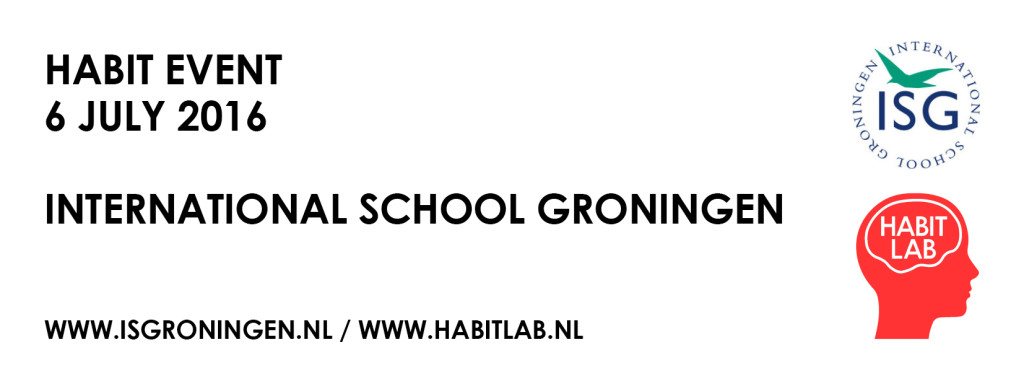
Students present Healthyways research at poster fair
On Wednesday the 29th, the poster fair of the Health Psychology master took place (Psychologie van Gezondheidsgedrag) at the University of Amsterdam. Of these students, five were involved in Habit Lab’s Healthyways project, and also presented their findings. It was a very successful afternoon with interesting research, a lot of room for discussion and many tasty (healthy and unhealthy) home-made snacks!
